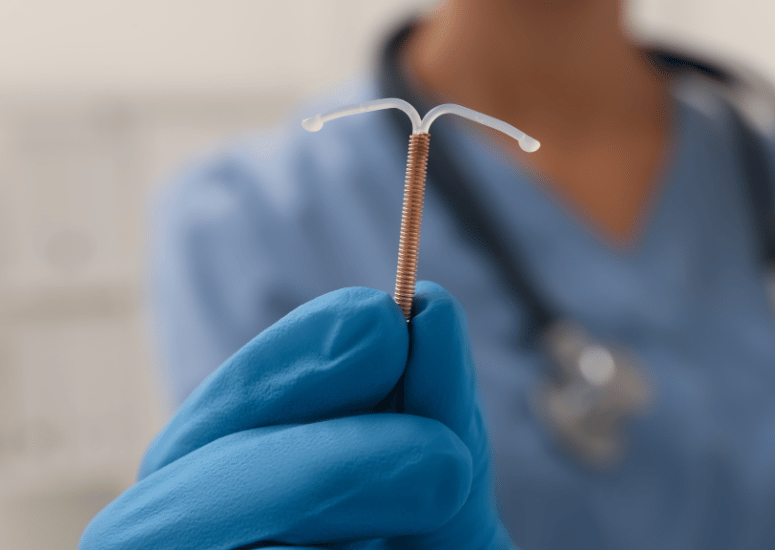LIST: Different birth control methods, and where you can get them
When it comes to being intimate, it's important to get consent and to be safe, and the latter can be done can be done with the right birth control method.
In a nutshell, birth control is a way of preventing unintended pregnancy—either due to health conditions or simply because it does not align with one’s plans. This can also protect against sexually transmitted infections (STIs) and help manage symptoms for those with medical conditions, like Polycystic ovary syndrome (PCOS).
Before anything, do note that birth control does not have a “one size, fits all.” It varies according to an individual's lifestyle, preferences, and health conditions, which must be thoroughly assessed by an OB-GYN who can give you professional advice about its effectiveness, protection, and side effects that you may experience, among others.
To give you an idea while you prepare for your upcoming consultation, or are not sure where to book for one, here are some of the birth control options to consider, and where you can get them.
Birth control pills

One of the popular hormonal methods is birth control pills, also known as oral contraceptives. These pills contain synthetic hormones of estrogen and progestin which help in stopping ovulation, thicken cervical mucus to prevent sperm from entering a woman’s body, and thinning the lining of your uterus to help prevent implantation.
These pills may contain a combination of estrogen and progestin or sometimes just progestin and must be taken correctly daily. Other than preventing pregnancy, it also helps regulate hormones especially those with PCOS, lessen menstrual pain, and more.
Note though that this won’t give you any protection against sexually transmitted diseases (STDs).
Where to get: BC pills are available in drugstores nationwide, just present your prescription which you can get from an OB-GYN. The prices range from P140 to P900 per box.
There is also the Likhaan Center for Women's Health Inc., an NGO that offers free clinic services. They have branches in Manila, Pasay, Quezon City, and Bulacan, among others.
Injectable contraceptives
Injectables are also hormonal contraceptives, but unlike pills, synthetic progestin hormones are injected into the muscle which will be done at regular intervals, usually every three months.
Note that you must consult with your doctor who will recommend the correct dosage you will need.
Where to get: Hospitals and clinics offer this method, such as Kindred Clinic at Serendra Mall in Bonifacio Global City, Taguig. The price starts at P370.
Implants
If you’re looking for a reliable but low-maintenance contraceptive, opt for an implant (or Implanon), which are long-lasting and reversible hormonal contraceptive. This method uses flexible rods that will be inserted under the skin of the upper arm by a healthcare professional. These rods slowly release a synthetic progestin hormone.
This method is reversible, so you can remove it when you decide that it does not suit you or you want to get pregnant. You no longer need to set an alarm unlike the pill as the one-time insertion can last up to three years.
Where to get: The Commission on Population's POPCOM wellness clinic in Mandaluyong offers this contraceptive for free.
Other methods
IUD

If you don’t want to affect your hormones, there are also non-hormonal methods you can choose from. One of which is an Intrauterine device, or IUD, a tiny T-shaped device that is inserted into the uterus by a healthcare professional. It has two variations: hormonal and the non-hormonal copper IUDs which cause inflammation in your uterus that’s toxic to the sperm. It also thins the uterine lining and “partially suppresses your ability to release an egg during your menstrual cycle,” as per the Cleveland Clinic.
IUDs are also said to have a success rate of 99% and can last up to 10 years.
Where to get: This is available in private hospitals and clinics as well as NGOs like Likhaan.
Tubal ligation and vasectomy
For permanent methods, you may opt for tubal ligation, a surgical procedure for women that blocks or cuts the fallopian tubes to prevent eggs from being fertilized. This procedure is irreversible, so make sure that you are a hundred percent decided before availing.
For men, they can opt for a vasectomy, a surgical procedure that seals the ends of the vas deferens—a tube that carries sperm to prevent it from being ejaculated during sexual activity. In case you change your mind, you can undergo a vasectomy reversal.
Where to get: These procedures are offered in hospitals.
Condom
One of the most widely accessible contraceptives is condoms, a barrier method that does not require a prescription. This thin latex or plastic is worn over an erect penis during sexual activity.
This physical barrier contains the sperm and other bodies, preventing pregnancy and transmission of STDs. When used correctly, this method is over 90% effective.
Where to get: Condoms are available in drugstores and convenience stores, with prices starting at P30.
Natural family planning methods

While it’s not a contraceptive, natural family planning methods like calendar, basal body temperature, and cervical mucus methods help prevent pregnancy by closely monitoring when you are most fertile. You may seek help from your trusted doctor for guidance.


